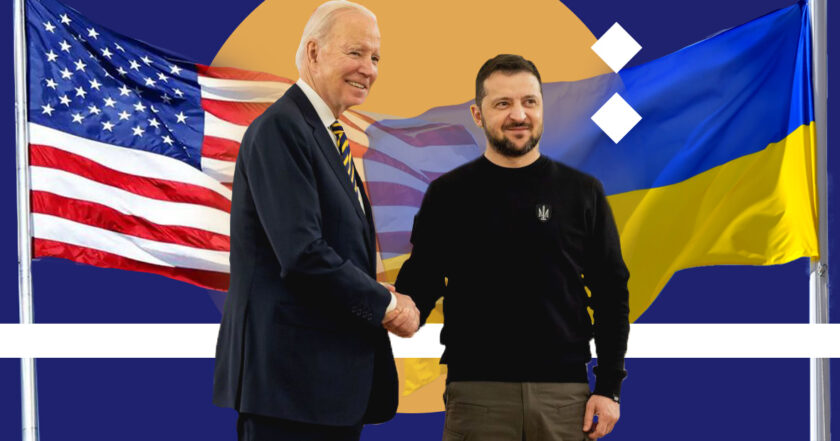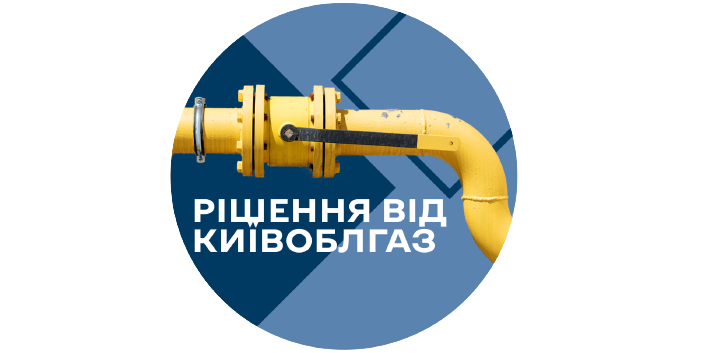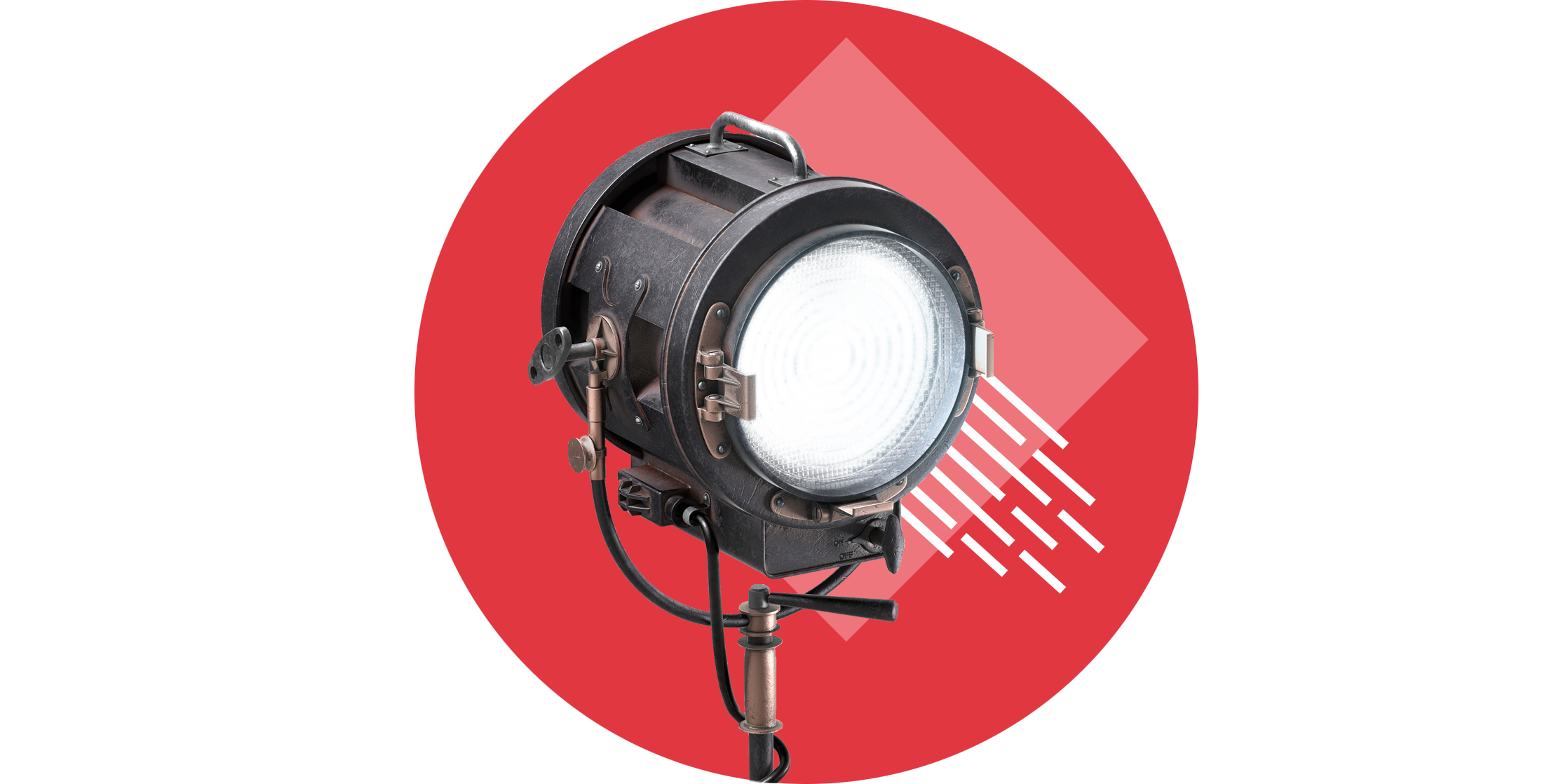President Biden visiting Kyiv and important messages coming from the allies: key trends in Ukraine's wartime reality

Internal Affairs
- President Zelensky's nominations of the heads of the Security Service of Ukraine and the Ministry of Internal Affairs of Ukraine mark the wartime shift towards a more technocratic approach to appointments in the Ukrainian national security apparatus. Later on, in his daily remarks, Zelensky specified that he wants more professionals with military experience at the top-level authorities' level – at least a seeming drift from a politically-driven staff approach.
- In the aftermath of recent anti-corruption investigations aimed at the Ministry of Defense of Ukraine, President Zelensky took political responsibility to keep Minister Reznikov in place, changing his deputies to address the issues the investigations revealed. The appointment of the new Deputy Ministers is a significant step forward in countering corruption risks within the Ministry system. The move seems well thought out, as Washington aims to step up the process of overseeing the financial and military aid it sends to Ukraine.
- Top US oversight officials responsible for tracking down the $110 billion military and economic aid to Ukraine stated they would insist on deploying auditor and investigator teams directly to the battlefield to ensure tight control as US military/financial aid scales up.
International Developments
- Joe Biden visited Kyiv to demonstrate to Vladimir putin that russia has failed in its policy of geopolitical and nuclear blackmail. Moreover, it is a clear message that the US will support Ukraine until the complete liberation of its territory. Biden leaves putin only one diplomatic exit from defeat: unilateral withdrawal of troops from Ukraine. At the same time, the US keeps urging Ukraine not to escalate by hitting russian territory before putin gives a clear answer whether he is ready for the unilateral withdrawal of troops back to russia.
- President Zelensky's February 8-10 visits to Great Britain, France, Belgium and Poland and his address to the European Parliament session brought back significant political and security dividends.
- Zelenskyy's visit to Great Britain (a major strategic Ukrainian ally in Europe) set the trend for other nations.
- The British Prime Minister, Parliament and Ruling Monarch expressed equally strong political support for Ukraine's cause. Mr Sunak introduced an even broader security initiative to
1) scale up the training program for Ukrainian military personnel to include Ukrainian Navy and Air Force,
2) to provide Ukraine with long-range weapon systems and modern fighter jets.
Eventually, it left other European nations with no option but to follow in British footsteps.
- President Zelenskyy's meeting with French President Macron and German Chancellor Scholz further stressed the readiness of the key European nations to remain united in the efforts to aid Ukraine in its fight against the russian invasion.
- President Zelensky's address to the European Parliament session once again stressed pressing political and security issues vital in terms of military aid Ukraine had already received. He once again reiterated key items (fighter jets and long-range weapon systems) that Kyiv urgently needs to be fully prepared to repel any coming russia's attacks and prepare for its major counteroffensive.
The visits allowed the Ukrainian government to synchronize its stance with the key Western European allies in the wake of the following two major international events highly significant regarding the russian-Ukrainian war and regional and global security.
- On February 14-15, the 9th Ramstein session agenda was the modern weapon systems and ammo that Western allies supplied to Ukraine amid the ongoing russian offensive. Ramstein's practical discussions focused on the following topics:
1) further increasing Ukrainian air defense and artillery potential by providing new and additional platforms and supplying enough ammo to ensure their maximum efficiency;
2) reaching maximum synergy on supplying Ukraine with modern main battle tanks with regards to logistics, timelines, crew training and maintenance/ammo supply chains deployment;
3) shaping up the next step of international discussions – supplying Ukraine with modern fighter jets.
Western allies clearly expressed their intentions further to discuss deliveries of modern fighter jets to Ukraine and not to repeat the overt sharpness of the previous discussions over the MBTs. The will to initiate a «fighter jet coalition» (much like the «tank coalition» that got eventually formed) is at the core of the future steps of the Western nations.
- The Munich Security Conference was another major international event that proved that the Western allies were ready to ensure Ukraine's victory over the russian invading force, restore Ukraine's territorial integrity and secure it from any military threats in the future.
It has sent several significant political signals from the key Western nations:
1) Great Britain – Prime Minister Sunak proposed to double the military support Ukraine is already receiving. He expressed readiness to supply Ukraine with long-range artillery systems and other military capabilities of the NATO standards to ensure long-term security and political support and stressed the unity of Western allies.
2) The United States of America – Secretary of State Blinken stressed the solid trans-Atlantic unity in supporting Ukraine and expressed complete confidence Ukraine will eventually be victorious against russian invading forces.
3) Poland – Prime Minister Morawiecki reaffirmed its commitment to fully support Ukraine militarily and politically to ensure its victory over Russia, building Ukraine as a strong and capable ally and not allowing Ukraine to be turned into a «buffer zone».
4) France – French President Macron assured its military and political support to Ukraine and fully supported the «Just Peace» plan. He also urged reforming the UN Security Council and the global security system regarding the aggressive russian stance in Ukraine and against the West.
(5) Germany – Chancellor Scholz assured Berlin would stand with other allies preventing russian revisionism from winning in Ukraine or elsewhere and further strengthening the Euro-Atlantic bonds.
6) NATO – Secretary General Stoltenberg stressed russian war in Ukraine is ultimately aimed at the West, and Putin's regime shows no sign of stopping its global aggression. So the escalation risk of supplying weapons to Ukraine is far less dangerous than compliance with russian threats and encouraging putin and other authoritarian regimes to use force to reach their political objectives.
War/Security Situation
- russian forces continue to press hard on critical sectors (Bakhmut, Vuhledar) on the Eastern front in a reckless attempt to drain the Ukrainian Armed Forces as much as they can before the Western armor arrives.
Prigozhyn's Wagner PMC remains at the center of these efforts. However, it furthers its influence with catastrophic combat losses and the evident inability to replenish them as Prigozhyn announced he would stop the recruitment of russian prisoners for the time being.
- As russian forces prepare for putin's next week's major public appearance, they try to scale up combat operations on the Eastern front. Despite heavy losses, they are desperate to keep the pressure on Ukrainian Armed Forces, the civilian population and political and military leadership by combining battlefield escalation and lower in scale but more frequent terrorist missile strikes against civilian/critical infrastructure targets.
- russian forces are also obviously preparing to try to massively use their tactical aircraft while trying to overwhelm Ukrainian air defences with a combination of drones, missiles and recon/decoy balloons (using Chinese experience in the latter).
All this fits well with the hybrid approach general Gerasimov is known for, showing the future scheme of a major russian offensive.
Conclusions and Recommendations
- President Zelensky's call to see more military-experienced technocrats in top-level positions is the right strategy. That strategy, however, needs a well-thought approach so as not to be compromised by turning into a mere power-struggle political instrument.
- Zelensky's appointment of the three new Deputy Defense ministers is a significant step forward in countering corruption risks within the Defense Ministry system, as Washington aims to step up the process of overseeing the financial and military aid it sends to Ukraine. However, Kyiv needs to pay more heed to counter corruption risks and work closely with the US to set the aid oversight mechanisms in motion. It would ensure no additional political risks to the financial/military aid coming to Ukraine in the second half of the 2023 and the following 2024 election year in the United States.
- President Zelensky's February 8-10 visits to Great Britain, France, Belgium and Poland synchronized Kyiv's stance with the key Western European allies in the wake of the following two major international events – the 9th Ramstein session and the Munich Security Conference.
- The 9th Ramstein is a significant step in preparing Ukraine for the coming decisive moment in the war, with the situation on the battlefield getting tenser and tenser. It also set in motion further discussions over medium- to long-term weapon supplies to Ukraine, including modern fighter jets.
- Further discussions on supplying Ukraine with modern fighter jets are centered on establishing the international «fighter jet coalition» – much like the previously established «tank coalition». Official Kyiv should increase diplomatic efforts on shaping up this coalition with the four main partners: the United States, Great Britain, France and Sweden. A time-bound action plan must be devised to supply the Ukrainian Air Force with the fighter jet platform it needs to be fully capable of defending itself against any aerial threat.
- The Munich Security Conference showed strong political solidarity among the Western nations. It demonstrated a solid joint view of russian aggression against Ukraine as a global threat and a collective will to stand by the Ukrainian side, to ensure its victory and protect the global order from deterioration by authoritarian regimes. These trends should be actively exploited by Ukrainian diplomacy to strengthen arguments used by Kyiv to persuade Western allies to provide Ukraine with modern fighter jets and strengthen Western military support.
- Situation on the battlefield clearly shows the approach, and the hybrid toolkit russian forces will use in the major coming offensive. russian hybrid toolkit includes battlefield pressure combined with operational manoeuvre capabilities, missile strikes against civilian targets, vast disinformation and political pressure campaign. The situation should be used as a means to get Ukrainian forces fully battle-ready for the coming escalation from the russian side and as a solid argument for Kyiv's Western allies to step up their military aid to Ukraine.
This policy brief was prepared exclusively for «Rubryka» by Ilko Kucheriv Democratic Initiatives Foundation as part of a project «russia-Ukraine Conflict: from Full-Scale War to Conflict Resolution and Post-War Reconstruction» implemented in cooperation with the Razumkov Centre with the support of the MATRA program of the Embassy of the Netherlands. The opinions expressed are those of the author(s) only and should not be considered as representative of the Embassy's official position.
Если вы нашли ошибку, пожалуйста, выделите фрагмент текста и нажмите Ctrl+Enter.


















